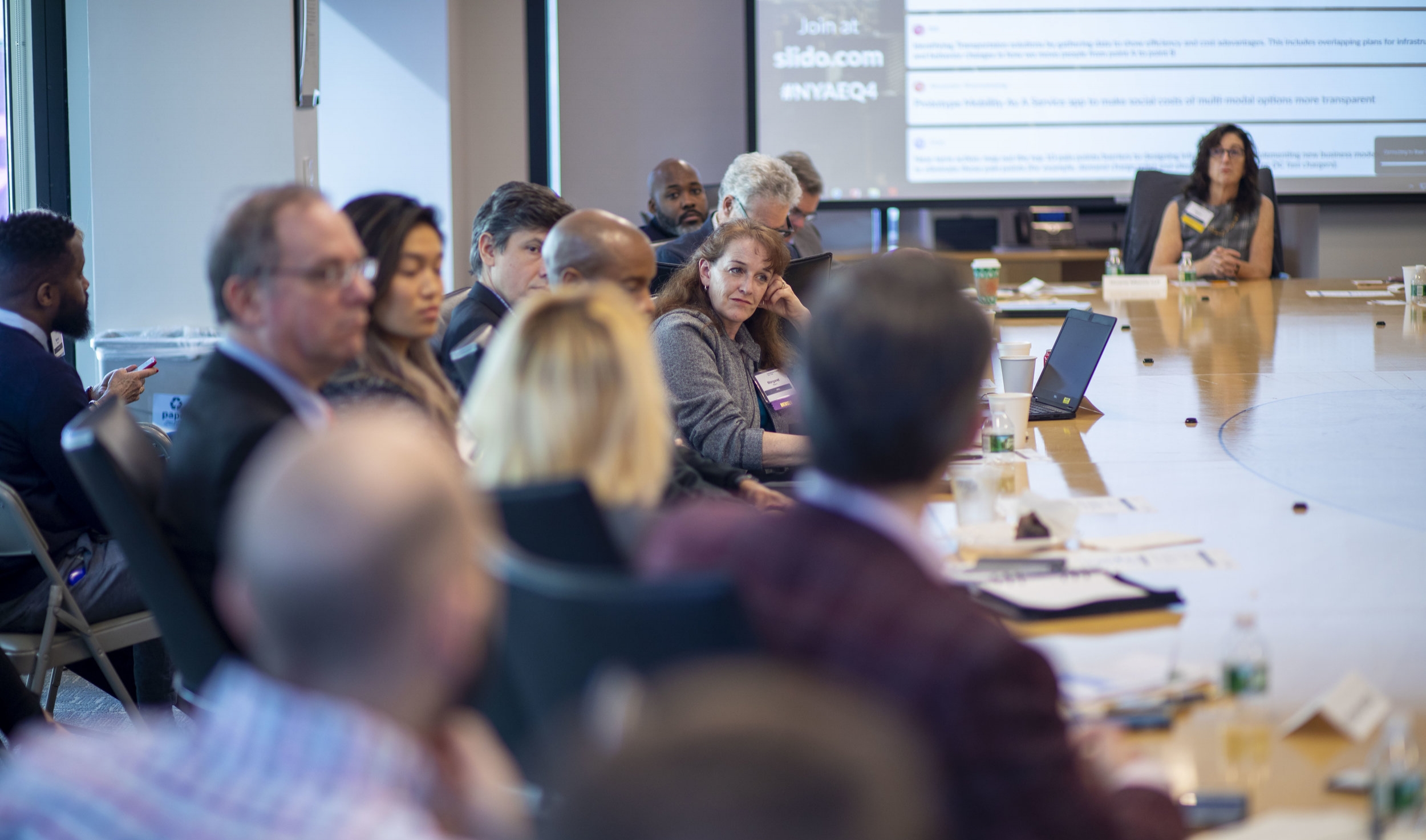- Michael Ramsey, AEG Fellow
Advanced Energy Group’s New York stakeholders convened on November 29 at the Duane Morris office near Times Square to discuss energy challenges related to Mobility and Transportation.
This quarter’s discussion leaders included:
Robyn Marquis, Program Manager for Clean Transportation at NYSERDA
John Shipman, Department Manager of Electric Vehicle Programs at Con Edison
Margaret Mann, Team Lead of Transportation and Infrastructure at NREL
Christine Weydig, Director of the Office of Environmental and Energy Programs at the NY/NJ Port Authority
HG Chissell, CEO of Advanced Energy Group, opened the conversation by stating the goal of the session: work together as a group to prioritize energy challenges and solutions associated with greening New York’s transportation sector.
Duane Morris host Phyllis Kessler concurred that the transportation sector is a critical energy challenge in the effort to reduce greenhouse gas (GHG) emissions. On electric vehicles (EVs), she noted that they are a viable and necessary replacement to internal combustion engines, but EV adoption remains low. The main culprit is a lack of charging infrastructure, the deployment of which has its own challenges. With this sentiment in mind, the floor was handed to our discussion leaders from NYSERDA, NREL, NY/NJ Port Authority, and Con Edison to propose what they believe are the greatest problems associated with this topic.
Robyn Marque, NYSERDA
Robyn Marquis, Program Manager for Clean Transportation at NYSERDA, discussed how NYSERDA addresses mobility and what their challenges are. NYSERDA has three areas of focus: EVs, Public Transportation, and Mobility Management. The latter focuses on the restructuring of the sector. Robyn discussed their portfolio of projects and highlighted what was keeping them the busiest. She identified gaps in and cost competitiveness of available technologies and business models that will enable a cleaner, more efficient transportation system as a significant challenge.
John Shipman, Department Manager of Electric Vehicle Programs at Con Edison, is confident EVs are coming, but is unsure how rapidly adoption will scale up. John explained the various initiatives Con Edison is making available to facilitate EV deployment. This includes identifying and targeting high potential initiatives, testing business models, as well as several pilot projects related to EVs. John believes the greatest challenge to focus on is identifying the programs that will best accelerate EV deployment. His problem statement was: “How do you leverage the collective needs of individual consumer groups to reduce overall costs?”
John Shipman, Con Edison
Margaret Mann, NREL
Margaret Mann, Team Lead of Transportation and Infrastructure at NREL, focuses her work on modeling and analyzing mobility scenarios and their respective emissions. As a researcher, her analyses are quantitative and objective, yet she points out that the shift required in the mobility system has significant implications for consumer behavior, a highly qualitative variable. Margaret believes that as we plan for this massive change, we need to design the sector to optimise public and private investments. Her question was “What is the most intelligent way to use investments wisely?”
Christine Weydig, NY/NJ Port Authority
Christine Weydig, Director of the Office of Environmental and Energy Programs at the NY/NJ Port Authority, highlighted the recent announcement the Port Authority made to stand behind the Paris Climate goals. This is the first entity of its kind to announce a commitment of this sort. Christine has several major sectors to address in support of this initiative, including the airport system, ocean-going vessels, and offshore wind deployment. Additionally, Port Authority of New York & New Jersey has agreed to procure Proterra Catalyst® E2 Electric Buses for John F. Kennedy International, LaGuardia and Newark Liberty International Airports, which supports its goal of a 100 percent electric airport shuttle bus fleet. Christine identified a challenge that she deals with is “funding/siting charging infrastructure at dynamic facilities in a fast-changing technological landscape.”
Stakeholders then discussed ways to best identify strategies to accelerate the transformation of the transportation sector. Through an engaged conversation amongst the stakeholders, there was a strong emphasis on coordinating the collective actions of all groups involved.
As the discussion leaders shared their own ambitious plans, it became clear that as the changes are developed and implemented, poor planning could lead to fundamental challenges down the road. It would be a terrible assumption that in the heat of urgent action to reduce emissions, all these initiatives would miraculously come together seamlessly decades from now. This presents problems for urban planners and utilities in the future. Additionally, the public agencies discussed limitations in funding for upgrading infrastructure, whereas the private sector expressed frustration in not receiving the appropriate signals to invest in what was deemed the most effective infrastructure.
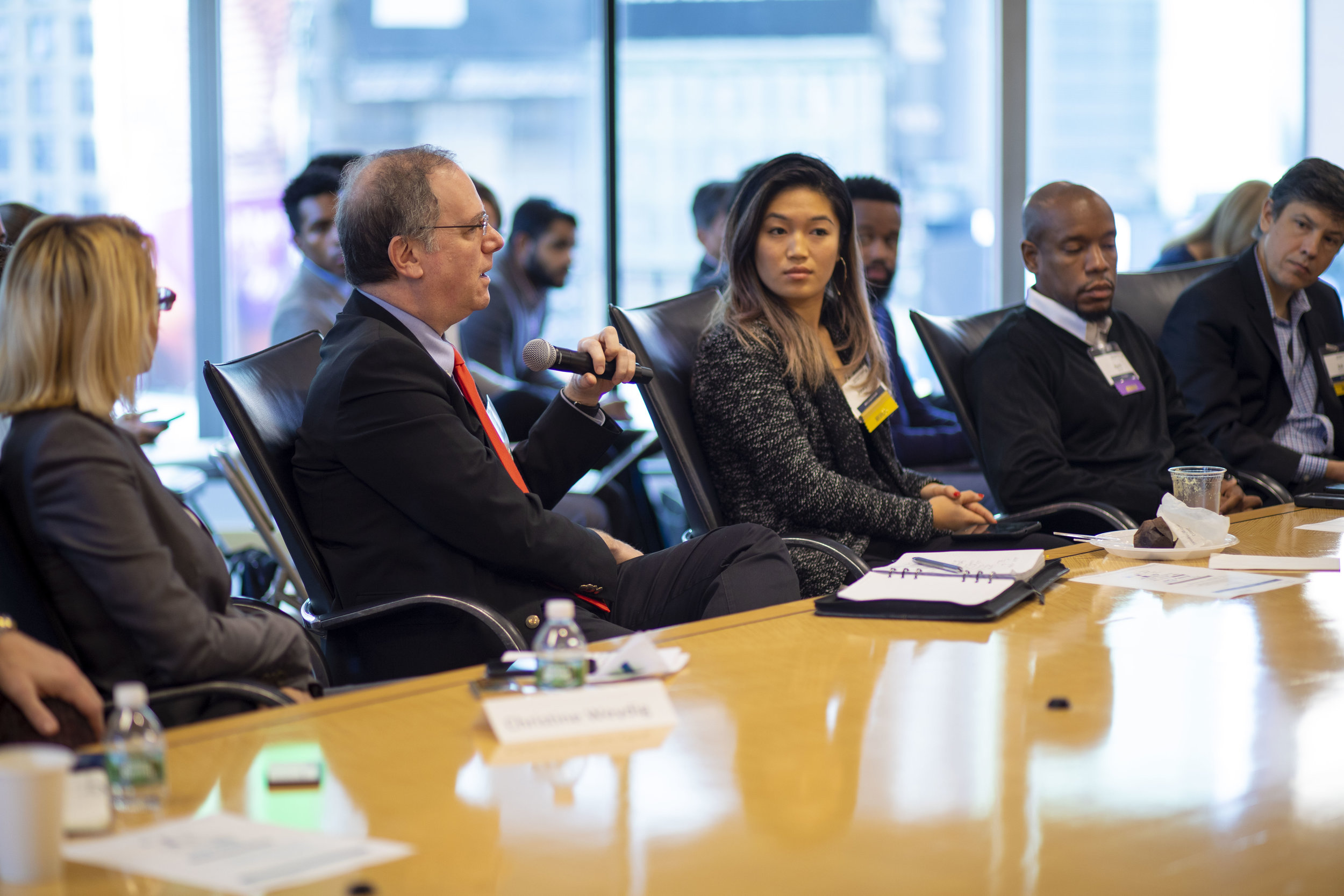
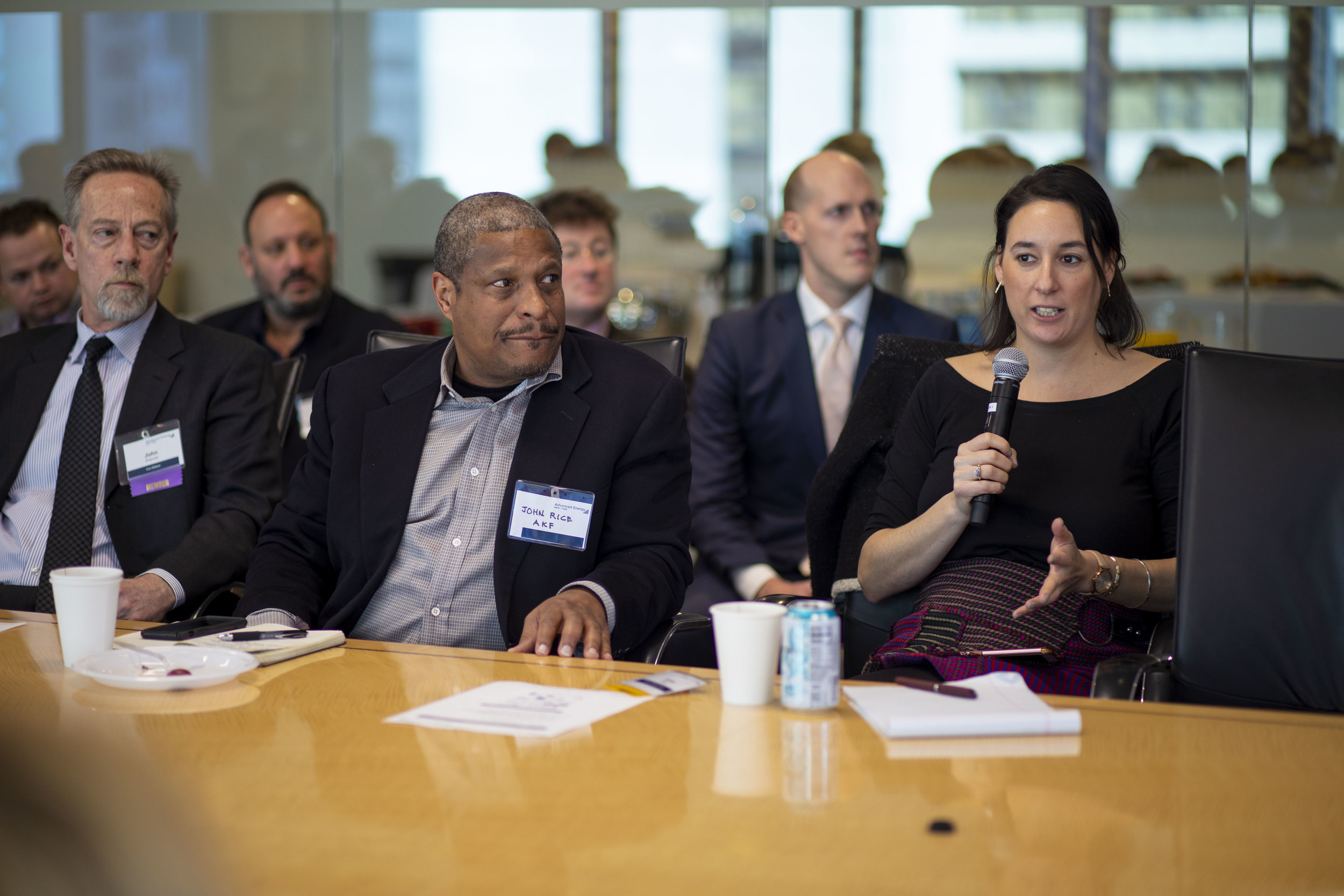
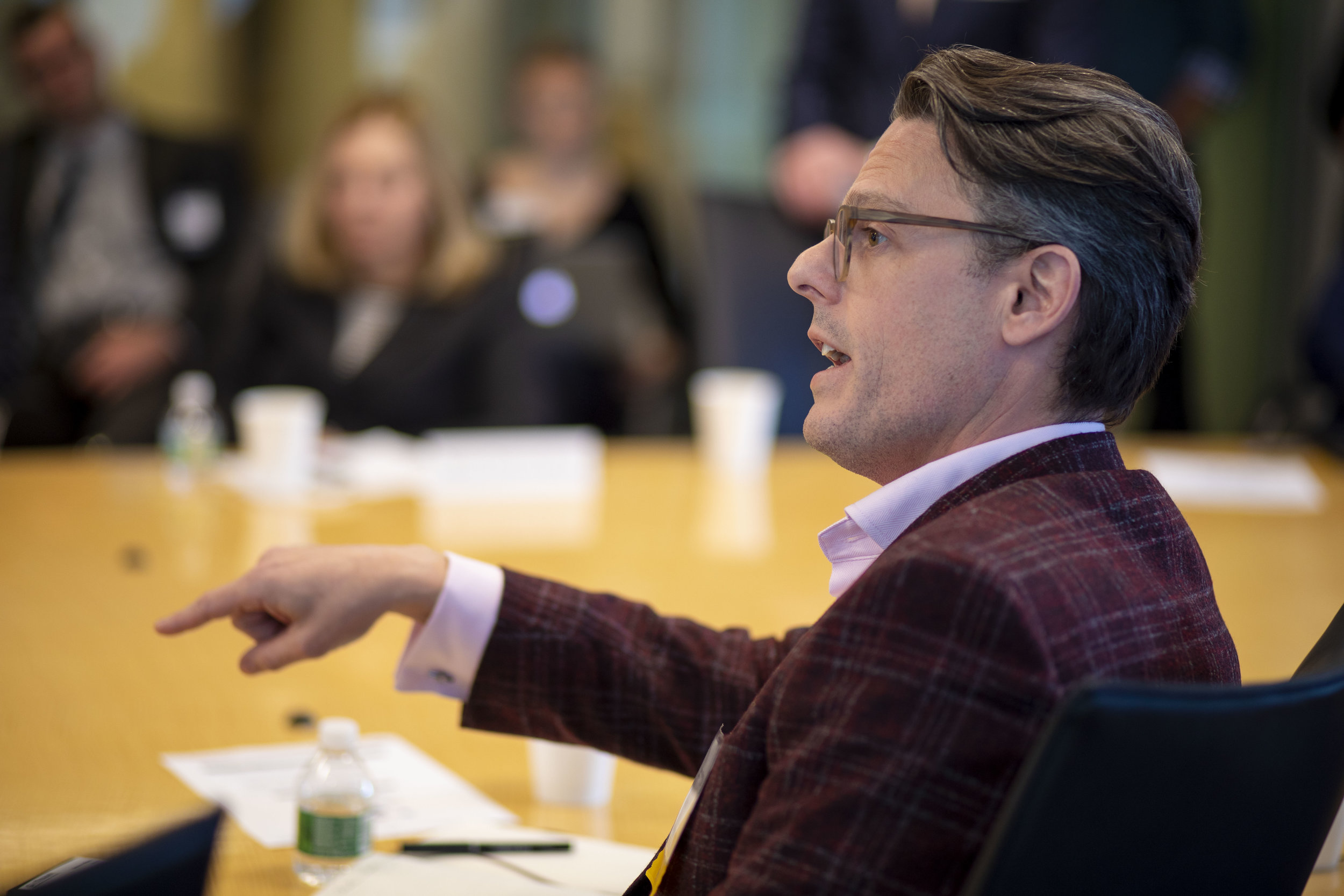
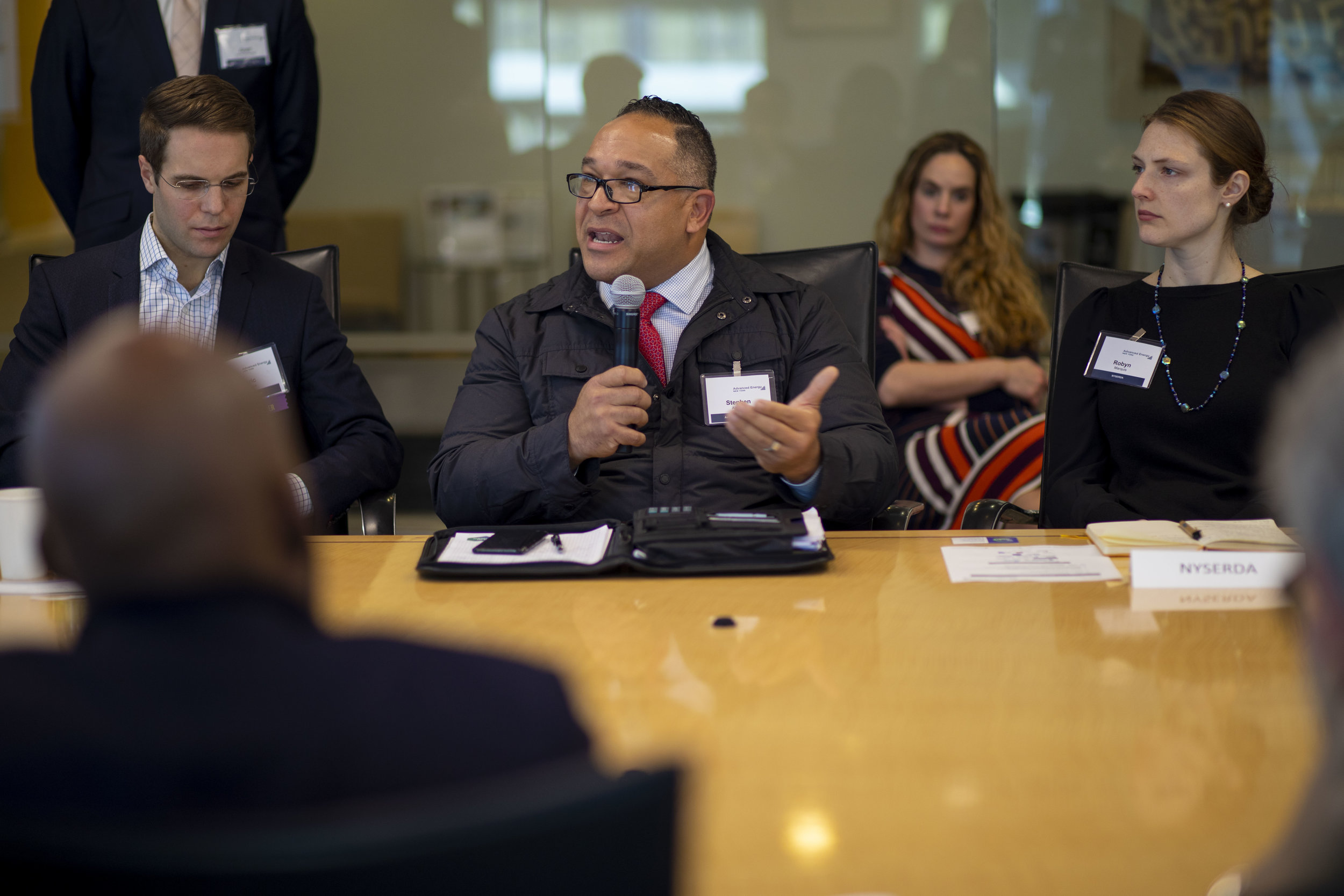

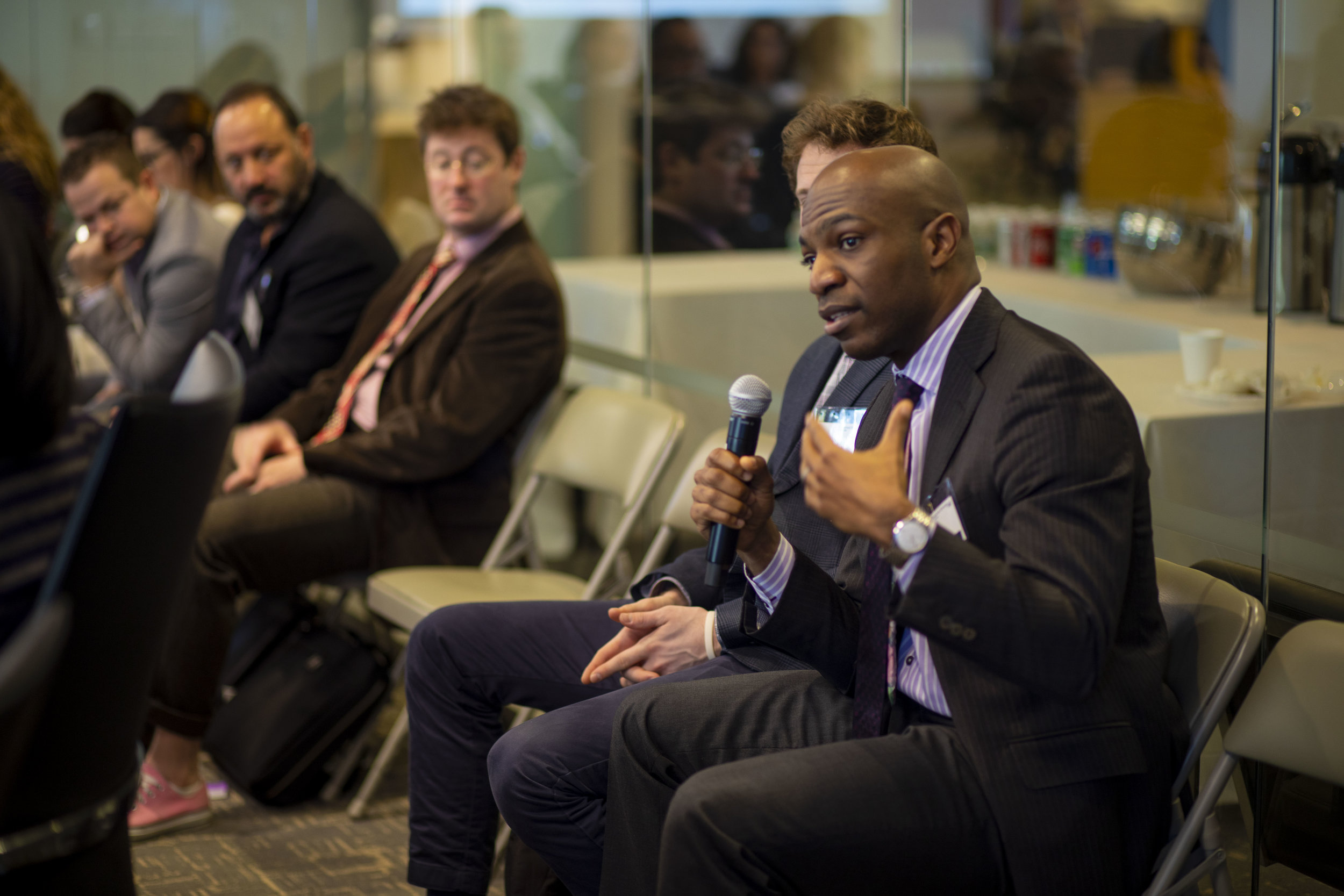

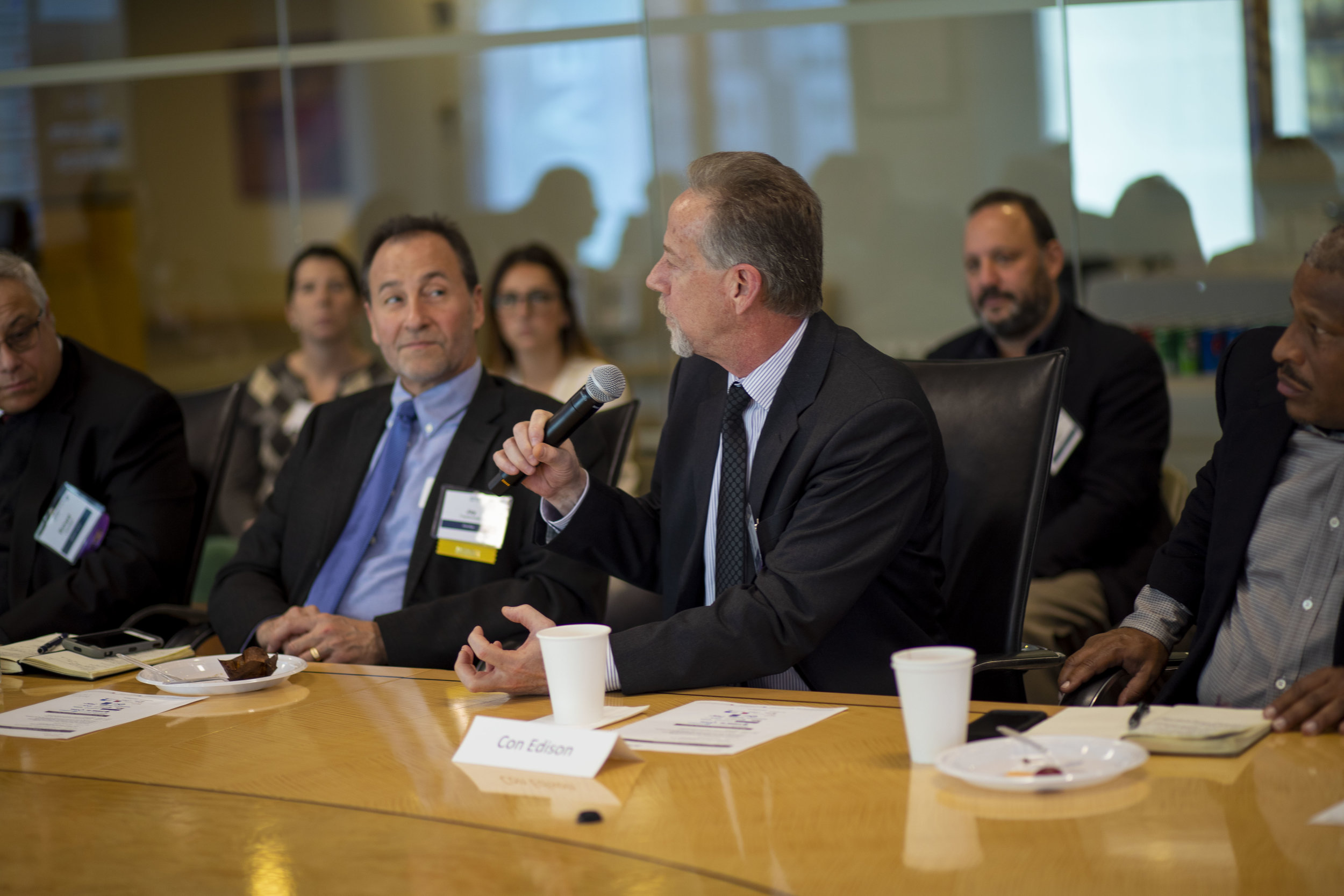
It was suggested that a Master Plan be created and managed by an unbiased entity, such as a public agency. Stakeholders taking on private initiatives should be required to disclose details of their plans to the Master Planner, so actions can be coordinated for efficiency and effectiveness. Ultimately, the stakeholder group expressed a need for greater public agency leadership to coordinate the collective actions currently underway. As much as drastic action is urgently needed for energy and emission reductions, this massive change needs to be controlled and managed to ensure a robust and efficient system in the future.
Next quarter on Thursday, February 21, 2019, Advanced Energy Group will be addressing Resiliency, Critical Infrastructure, and Microgrids.
Advanced Energy Group is a stakeholder member-supported organization committed to developing and delivering advanced energy policies and solutions in key cities. Stakeholder sessions are by invitation only. For details of our programming please visit:
Event Calendar | Podcasts | Videos | LinkedIn | Twitter






